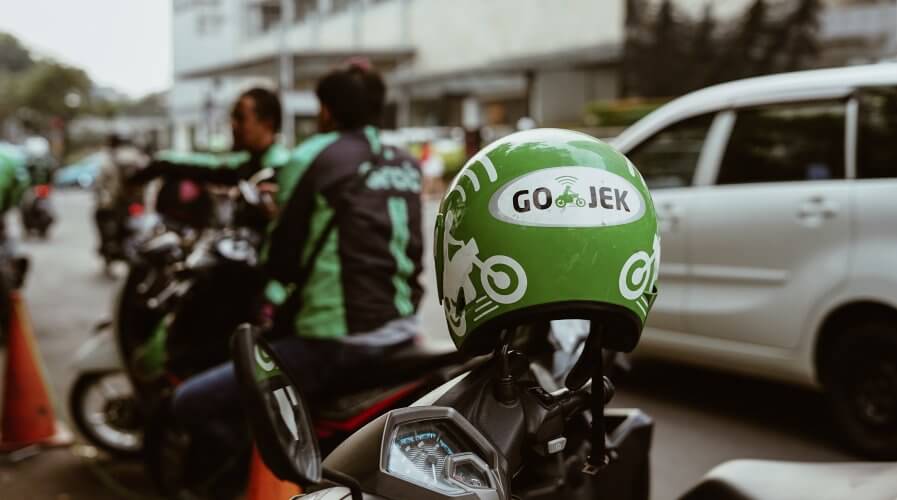
Go-Jek’s bid to expand to the Philippines suffered a blow when local regulators denied the ride-hailing firm to operate in the country. Source: Shutterstock
How Go-Jek hit a stumbling block in the Philippines
THE race to become the dominant ride-hailing player in Southeast Asia started heating up when Indonesian outfit Go-Jek began expanding to Vietnam, Thailand, and Singapore in the last six months.
However, the company’s bid to go toe-to-toe with regional giant Grab hit a significant stumbling block this week in the Philippines.
Land Transportation Franchising and Regulatory Board (LTFRB) of the Philippines denied Go-Jek’s application to operate within the country.
According to local media, a majority of Go-Jek’s Philippines subsidiary, Velox Technology Philippines, is primarily owned by its holding company in Singapore. This goes against the country’s rule requiring a 60 percent domestic ownership in public utility franchises.
The latest incident is a major blow for Go-Jek, which is valued at more than US$6 billion and boasts tech giants such as Google and Tencent as backers.
It seems like the company has little chance of meeting the regulators’ requirements for now, without significant structural revamp of its organization in the Philippines, and it remains unclear how the company had failed to see this coming.
In a statement responding to the setback, Go-Jek said they would continue to work with the regulators to improve transportation in the Philippines.
“We continue to engage positively with the LTFRB and other government agencies, as we seek to provide a much-needed transport solution for the people of the Philippines,” they said.
Go-Jek’s competitor in the region, Grab meanwhile said that the company’s business in the Philippines is ownership is mostly held locally, through a spokesperson. They declined to reveal the identity or the details of the local owner(s), however.
Grab, since buying Uber’s Southeast Asia’s operations last year, is virtually enjoying a monopoly in the country and most of Southeast Asia.
In the past, ride-hailing vendors were operating as telecommunications services in the Philippines, but the regulations were tightened last year.
Meanwhile, LTFRB said that Go-Jek, through its local entity Velox, can still appeal the decision.
Go-Jek announced its plans to enter four new markets last year and the Philippines remains the one market that eludes the company. Last September, it rolled out its services in Vietnam via Go-Viet, and launched a trial run in Singapore, as well as in Thailand.
Southeast Asia’s digital economy is expected to grow up to US$240 billion in valuation in the next five years, and ride-hailing services are one of the critical drivers of that growth which has set up an intense battle for market share between regional leaders, Grab and Go-Jek.
Regardless of who comes out on top in the end, the vibrant and healthy competition in the local market is something that is expected to cultivate more innovation and help improve services.
And thus, as these two firms fight it out to cut into each other’s markets, consumers in the region will be the ultimate winners.
READ MORE
- Strategies for Democratizing GenAI
- The criticality of endpoint management in cybersecurity and operations
- Ethical AI: The renewed importance of safeguarding data and customer privacy in Generative AI applications
- How Japan balances AI-driven opportunities with cybersecurity needs
- Deploying SASE: Benchmarking your approach






